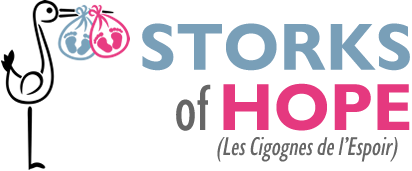Epigenetics
Epigenetics and egg donation
Epigenetics is a branch of biology that studies changes in gene expression that are not due to changes in DNA sequence. These modifications can be caused by environmental factors such as diet, stress or medication.
In egg donation the pregnant woman carries a child created from the egg of a donor. The child does not therefore share the genetic heritage of the person carrying it. However, epigenetics can play a role in the child's development.
Epigenetics’ mechanisms
Epigenetics can modify genes expression in several ways. One common modification is DNA methylation. Methylation is the addition of methyl groups to DNA. These methyl groups can block gene expression.
Another epigenetics implication is the modification of histones. Histones are proteins that wrap around DNA to form chromosomes. Histone modifications can also affect gene expression.
Egg donation implications
The implications of epigenetics in egg donation are still not fully understood. However, it is possible that the environment of the receiving mother's womb can influence the expression of the child's genes. This could explain why some babies born by egg donation resemble their mother who benefited from the donation.
Examples
Studies have shown that the environment of the womb can influence the expression of the embryo's genes. For example, mothers who are exposed to pollution or stress during pregnancy may have children who are more likely to develop certain diseases.
In the case of egg donation, it is possible that the environment of the recipient mother's womb can influence the expression of the child's genes in several ways. For example, the recipient mother may eat a different diet to the donor or she may be exposed to different environmental factors.
Ongoing research
Further research is needed to understand the role of epigenetics in egg donation. This research could help to better understand the risks and benefits of this procedure.
Potential implications
If research confirms that the environment of the recipient mother's womb can influence the expression of the child's genes this could have important implications on egg donation. For example, recipient mothers could be encouraged to adopt healthy lifestyle habits during pregnancy in order to ensure optimal development of the child.
Conclusion
Epigenetics is a rapidly developing area of biology. Research into epigenetics and egg donation is still in its early stage. However, this research could have important implications in understanding the risks and benefits of this procedure.
Specific examples
Here are a few concrete examples of how epigenetics could influence the development of a child born by egg donation:
- The recipient mother is diabetic. The mother's diabetes may lead to a change in the expression of the child's genes which could make him or her more likely to develop diabetes in adulthood.
- The recipient mother is exposed to pollution. Pollution can also modify the expression of the child's genes which could make him or her more susceptible to developing certain diseases such as asthma or cancer.
- The recipient mother is stressed. The mother's stress can also modify the expression of the child's genes which could make him or her more likely to develop disorders such as anxiety or depression.
In addition to the above here are a few other concrete examples of how epigenetics could influence the development of a child born by egg donation:
- The diet of the recipient mother can influence the expression of the child's genes which could result in differences in weight, height or health in adulthood.
- Exposure to medicines. Certain drugs, such as antidepressants or anti-cancer drugs, can alter the expression of a child's genes which could increase the risk of certain health problems.
- The lifestyle of the recipient mother, in particular her physical activity, smoking and alcohol consumption, can also influence the expression of the child's genes.
Of course, these are just examples and it is impossible to say with certainty how epigenetics will influence the development of a child born through egg donation. However, these examples show that the environment of the recipient mother's womb can have an impact on the child's health.
Additional comments
It is important to note that epigenetics changes are generally reversible. This means that the effects of the environment of the recipient mother's womb on the child can be attenuated or cancelled out by subsequent environmental factors, such as a healthy diet and lifestyle.
It is also important to remember that epigenetics is only one factor among many others that influence a child's development. Heredity, postnatal environment and parents' personal choices also play an important role.

